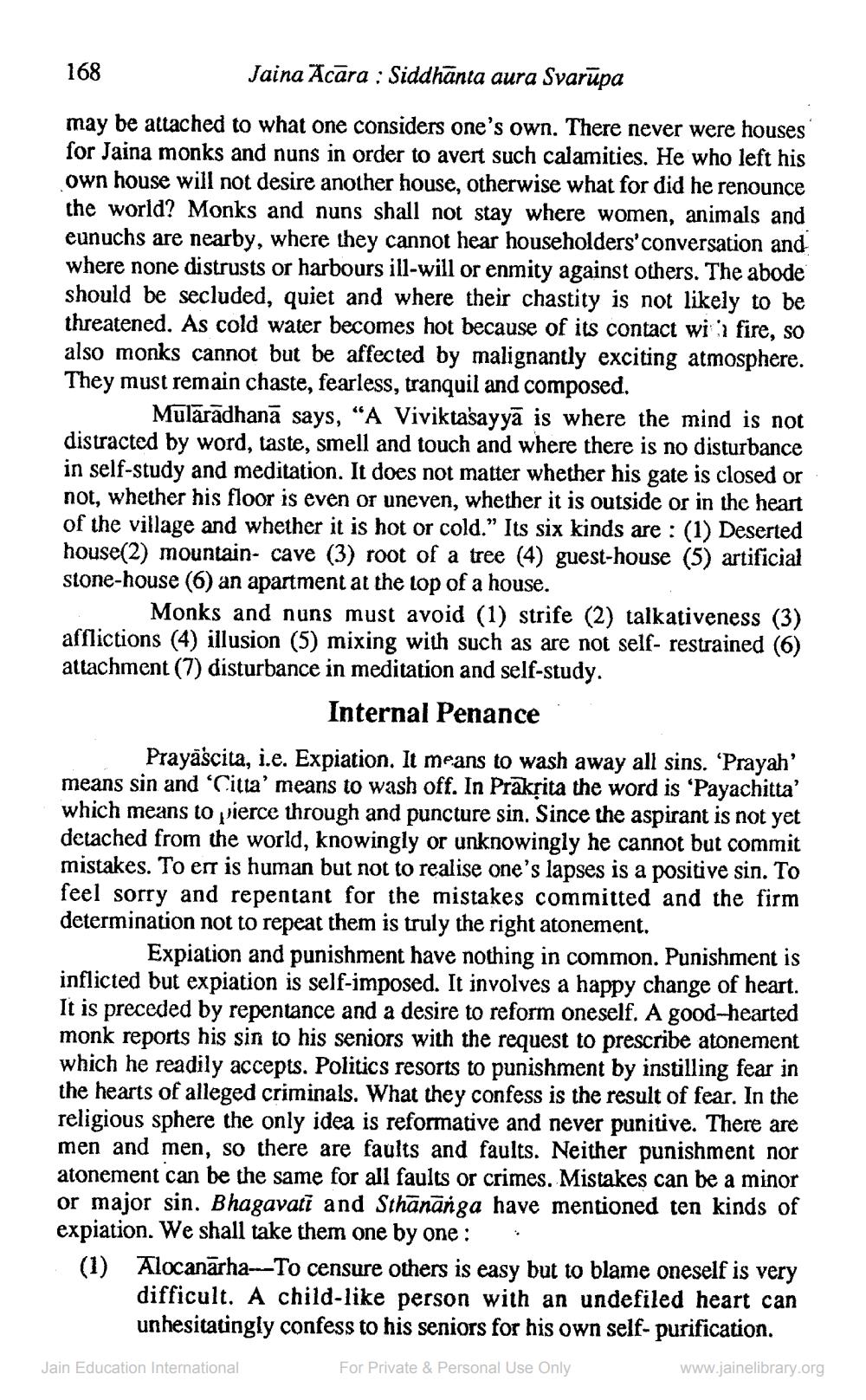________________
168
Jaina Acāra : Siddhānta aura Svarūpa
may be attached to what one considers one's own. There never were houses for Jaina monks and nuns in order to avert such calamities. He who left his own house will not desire another house, otherwise what for did he renounce the world? Monks and nuns shall not stay where women, animals and eunuchs are nearby, where they cannot hear householders'conversation and where none distrusts or harbours ill-will or enmity against others. The abode should be secluded, quiet and where their chastity is not likely to be threatened. As cold water becomes hot because of its contact wi fire, so also monks cannot but be affected by malignantly exciting atmosphere. They must remain chaste, fearless, tranquil and composed.
Mulāradhanā says, "A Viviktasayyā is where the mind is not distracted by word, taste, smell and touch and where there is no disturbance in self-study and meditation. It does not matter whether his gate is closed or not, whether his floor is even or uneven, whether it is outside or in the heart of the village and whether it is hot or cold.” Its six kinds are: (1) Deserted house(2) mountain- cave (3) root of a tree (4) guest-house (5) artificial stone-house (6) an apartment at the top of a house.
Monks and nuns must avoid (1) strife (2) talkativeness (3) afflictions (4) illusion (5) mixing with such as are not self- restrained (6) attachment (7) disturbance in meditation and self-study.
Internal Penance
Prayascita, i.e. Expiation. It means to wash away all sins. 'Prayah' means sin and 'Citta' means to wash off. In Prakrita the word is 'Payachitta' which means to pierce through and puncture sin. Since the aspirant is not yet detached from the world, knowingly or unknowingly he cannot but commit mistakes. To err is human but not to realise one's lapses is a positive sin. To feel sorry and repentant for the mistakes committed and the firm determination not to repeat them is truly the right atonement.
Expiation and punishment have nothing in common. Punishment is inflicted but expiation is self-imposed. It involves a happy change of heart. It is preceded by repentance and a desire to reform oneself. A good-hearted monk reports his sin to his seniors with the request to prescribe atonement which he readily accepts. Politics resorts to punishment by instilling fear in the hearts of alleged criminals. What they confess is the result of fear. In the religious sphere the only idea is reformative and never punitive. There are men and men, so there are faults and faults. Neither punishment nor atonement can be the same for all faults or crimes. Mistakes can be a minor or major sin. Bhagavati and Sthānanga have mentioned ten kinds of expiation. We shall take them one by one: (1) Alocanärha---To censure others is easy but to blame oneself is very
difficult. A child-like person with an undefiled heart can unhesitatingly confess to his seniors for his own self-purification.
Jain Education International
For Private & Personal Use Only
www.jainelibrary.org




